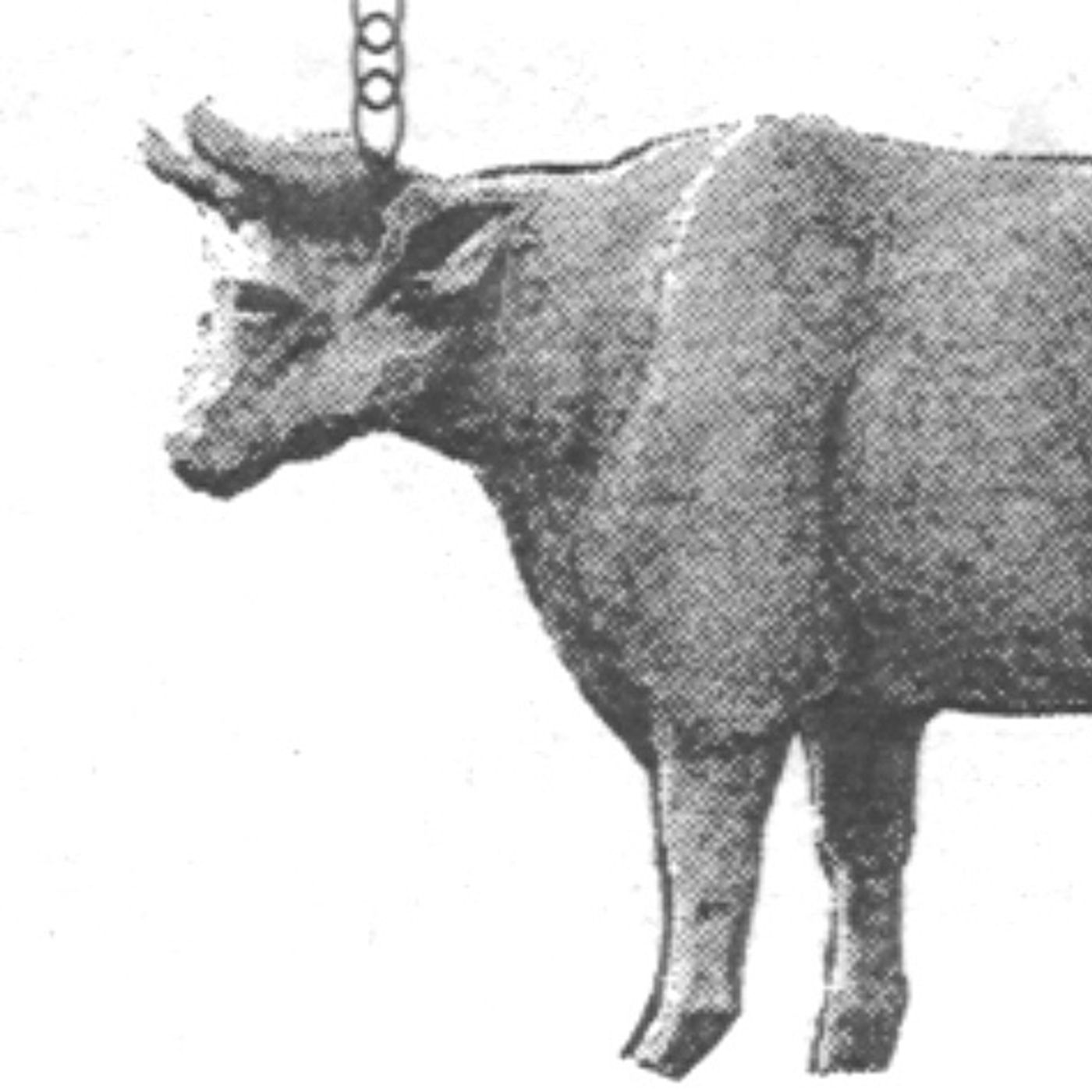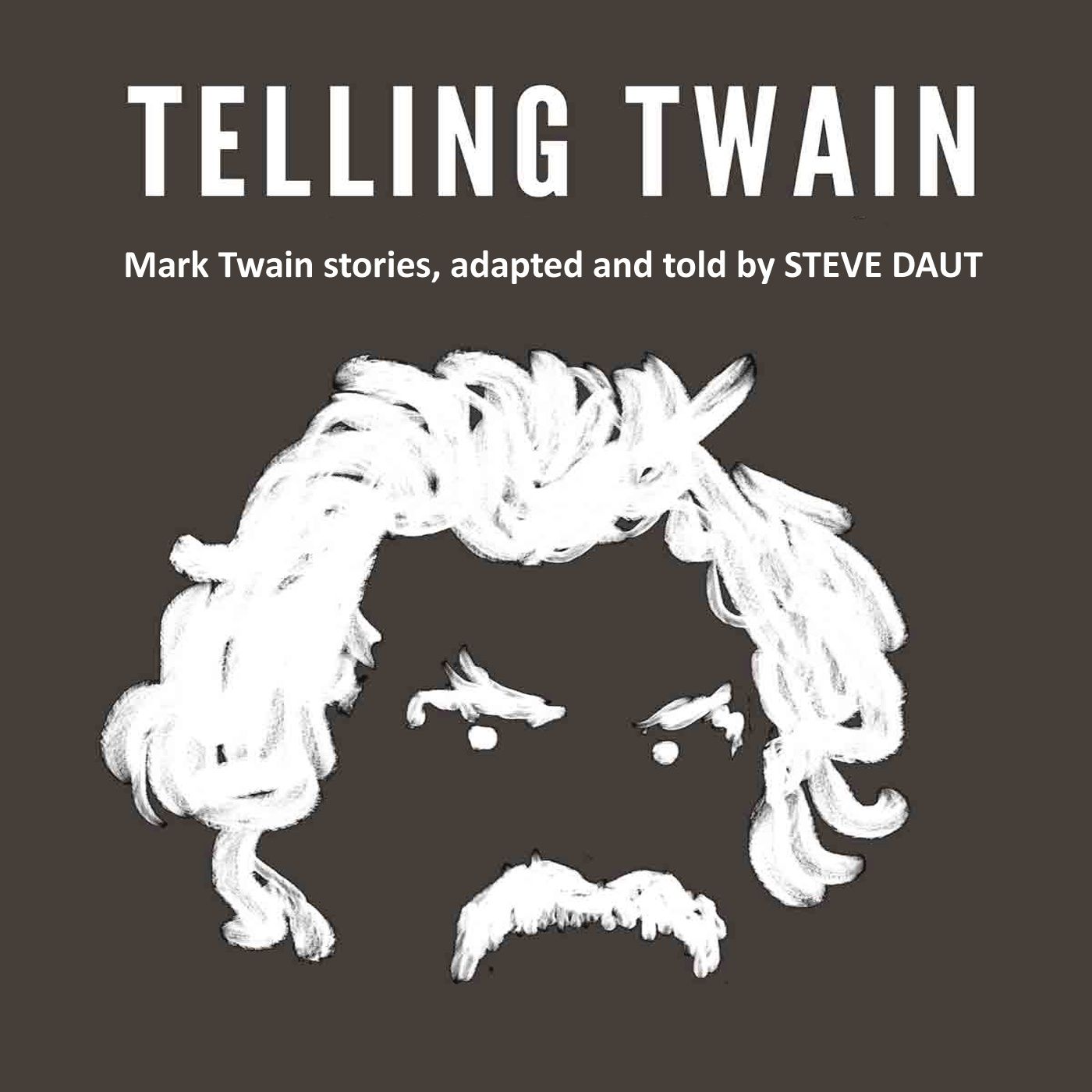Discover Telling Twain
Telling Twain

Telling Twain
Author: Steve Daut
Subscribed: 0Played: 1Subscribe
Share
© Copyright Steve Daut
Description
These are some of Mark Twain's best short stories, adapted and told by Steve Daut. Episodes include historical notes and comments from Steve's book, Telling Twain, available through Amazon. To learn more about Steve, visit www.stevedaut.com
Steve's storytelling program, also entitled Telling Twain, is currently listed in the Michigan Arts and Humanities Council travel directory. Special online presentations can be arranged by emailing me through mail@stevedaut.com
Steve's storytelling program, also entitled Telling Twain, is currently listed in the Michigan Arts and Humanities Council travel directory. Special online presentations can be arranged by emailing me through mail@stevedaut.com
27 Episodes
Reverse
This story, first published in 1870, is refreshing in a way, because it demonstrates very clearly that a dysfunctional government bureaucracy has been with us for a long time, yet, we have managed to survive so far. So the next time you spend countless hours trying to straighten out an incorrect tax bill, think about what the guy in this story had to go through. The music for the episode is "Busybody", by Bryan Teoh, from FreePD.com
In this humorous but thought-provoking story, Twain reminds us to respect and honor those who have gone before. This is a adaptation is from a story Twain probably wrote around 1870, and was first published in 1875 in the volume, "Sketches New and Old". Music from FreePD.com includes "Footsteps in the Attic", by Arthur Fordsworthy, and "Nightmare" by Alexander Nakarada. Sound effects are from Soundjay.com, and from my personal recordings. The cover picture is from Portuguese Gravity on Unsplash.
This is one of three stories that Twain claimed was told to him by a man he met on his travels, Mr. McWilliams. I suspect the stories are homage to a couple he was friends with while he worked at the Buffalo Express.
This story was originally called The Canvasser's Tale, was first published in 1876. I changed the name because in today's language, we would call the man Twain encounters a travelling salesman, as we reserve the term canvasser mainly for get-out-the-vote types. Frankly, it seems to me that the artifice of enclosing the story within the frame of a visiting salesman doesn't really enhance the story, as the inner tale is so brilliant it could probably stand better on its own. But I left in the frame as a nod to Twain's conception of the story.The music is "Barroom Ballet" by Kevin MacLeod, for FreePD.com
This is one of three stories Twain wrote about the McWilliamses. He claimed that they were told to him by Mr. McWilliams, who he encountered on his travels, but it seems more likely to me that the stories were written in homage to friends who lived in the same boarding house as Twain when he was working at The Buffalo Express, John and Esther McWilliams.
This story was first published in 1909. As one of Twain's later stories, it was tightly written, and it is also very reminiscent of the folk tale genre that he was emulating. In fact, it sounds do much like an actual folk tale, that I tried to find one that inspired it, but I couldn't find anything quite like it. I did change the ending a bit to clarify my sense of what the story is about.
A convoluted European folktale with a particularly Twain twist at the end. Originally published in 1870 as The Awful, Terrible, Medieval Romance, Shakespeare would probably have appreciated this one.
This story was originally part of Twain's book, Life on the Mississippi. It's a story that takes me back to my childhood growing up on the Mississippi River, riding the Delta Queen and watching episodes of Maverick. It's a classic tale of riverboat life.
This story was first published in Galaxy Magazine and the Buffalo Express. Although it is certainly fiction, it is also very likely that it is based on arguments that he had with his partners at the Buffalo Express about increasing circulation versus staying strictly with journalistic accuracy.The music for this episode is "Bleu" by Komiko, from FreePD.com.
In this story, first published in 1870, Twain talks about his travails with getting a watch fixed that didn't need fixing. I have told this in front of various audiences and quickly discovered that I needed to explain what it was like to have a pocket watch in an era when there was no place to find the exact time, and no telephones to even call to find out the time. So I provide that explanation right up front, trying to integrate it as seamlessly as possible into the story.
The Killing of Julius Caesar was first published in a compilation of stories, and is Twain's little exercise in imagining what it would be like to be a reporter in ancient Rome, writing about Caesar's murder. Not wholly successful, so I have tried to modify it to make it less complicated (and hopefully more interesting) at the expense of some of the historical accuracy of the account.
Twain claimed that the original version of this story was his satiric counterpoint to The Gates Ajar, by Elizabeth Stuart Ward. It pokes fun at the absurd contradictions we carry about the nature of what Heaven is like. This adaptation is based on the revised version that was published in 1909.
This story is my adaptation of Twain's story entitled Two Little Tales. The original is a story within a story, but it seems to me that the "outer" story that wraps around the other one actually distracts from the message of the inner story, so I got rid of it, leaving me with One Little Tale. I also added a fairy tale ending, because I felt that's what it needed, even at the risk of being pilloried by Twain purists.
This story is pure Twain, full of sardonic humor and dry wit. It is a telling statement of the nature of political campaigns, and manages to be a refreshing reminder that the squabbling we experience today have long been a part of politics in America.
This is a minor adaptation of a dark and pessimistic story by Twain. It was written during a time when his wife, Libby, was dying and he was beginning to think about writing his autobiography. The story almost seems like a short autobiography itself, at a dark and hopeless time in Twain's life.
This is one of the more complex episodes in the series. Twain's original was written in multiple parts, and the connection between them is not always consistent, so it took a fair amount of adaptation. On the others hand, it was great fun to put it all together with voices and sound effects!
In trying to write an essay on political economy, Twain is interrupted repeatedly by a lightning rod salesman. In trying to dispatch the interruption quickly without looking foolish, Twain just makes things worse . . . . and worse . . . . and worse . . . .
A Ghost Story was first published in an 1875 volume entitled Sketches New and Old. The inspiration for the story has been called "The greatest hoax every perpetuated on the American people". This episode contains both Twain's story and the true story that inspired it.
An excerpt from A Tramp Abroad that was published to promote that book in the Cincinnati Daily Star
An 1860's courtroom drama. Absurd as it sounds, it may have actually happened!







